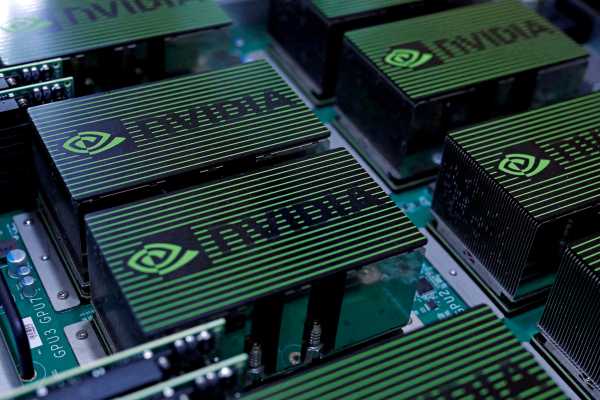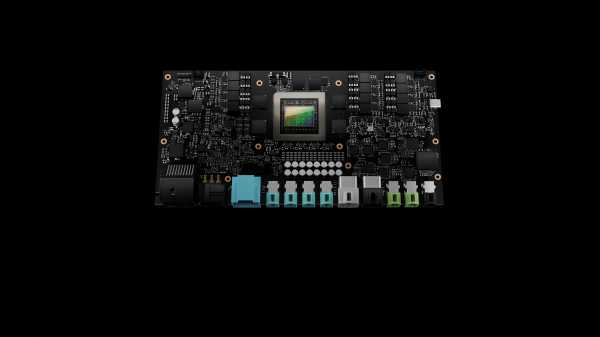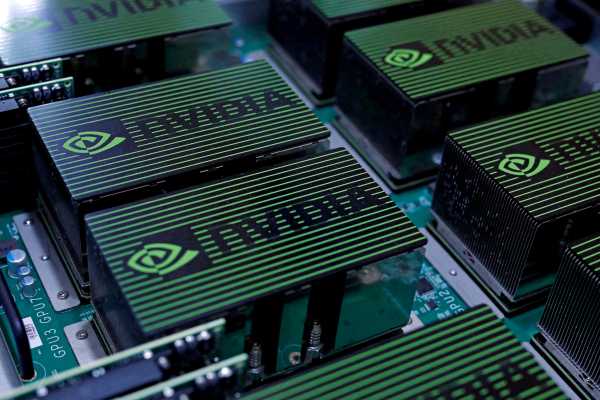Chipmaker Nvidia launches new system for autonomous driving



1/2
NVIDIA DRIVE Thor, the company's next-generation centralized computer for autonomous and assisted driving and in-car infotainment, is shown in a handout image obtained September 20, 2022. Courtesy of Nvidia/Handout via REUTERS
Sept 20 (Reuters) – Chip giant Nvidia Corp (NVDA.O) on Tuesday unveiled its new computing platform called DRIVE Thor that would centralize autonomous and assisted driving as well as other digital functions including in-car entertainment.
Nvidia, a big player in the gaming chip and artificial intelligence (AI) market, has been making a big push in the automotive business, a key growth segment for the company.
Danny Shapiro, head of Nvidia's automotive business, said DRIVE Thor would be able to replace numerous chips and cables in the car and bring down the overall system cost, although he did not give specific numbers on savings.
"You can imagine a tremendous savings in terms of cost, in terms of reduced cabling, in terms of reduced weight, in terms of reduced energy consumption overall," Shapiro said during a briefing session.
Some automakers have begun work on designing their own chips to gain more control and cut costs.
General Motor's (GM.N) autonomous driving unit Cruise last week said it had developed its own chips to be deployed by 2025. It currently uses Nvidia chips.
The first customer Nvidia announced for DRIVE Thor is China's Geely-owned (GEELY.UL) ZEEKR.
Shapiro said its current computer system called DRIVE Orin will be used in Chinese car company XPeng's new smart SUV and Chinese autonomous driving startup QCraft.
But this comes amid worries about whether Chinese customers would be able to continue to access Nvidia technology with a recent U.S. ban on exports of two top Nvidia computing chips for data centers to China.
"There's a lot of companies doing great work, doing things that will benefit mankind and we want to support them," Shapiro said. "In the cases where we do have product for the data center that has some export restrictions, we're working with those Chinese customers to come up with a suitable alternative product."
Reporting By Jane Lanhee Lee; Editing by Himani Sarkar
Our Standards: The Thomson Reuters Trust Principles.
Source:www.reuters.com



